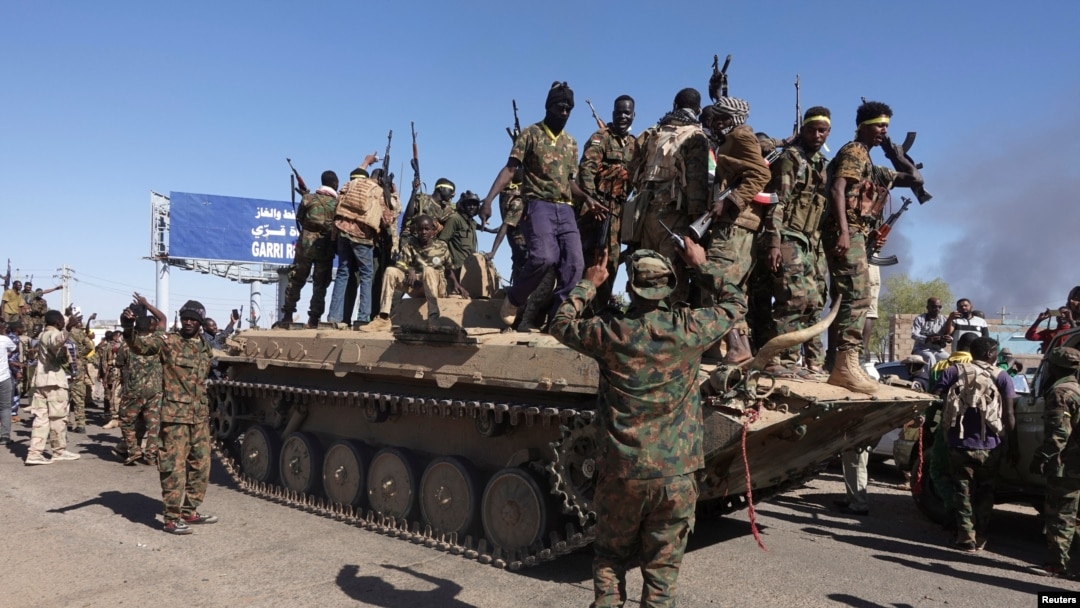UN rejects Sudan’s RSF-led parallel government

The UN Security Council refused to recognise Sudan’s paramilitary Rapid Support Forces’ newly established parallel government, according to AP via The New Arab on August 13th.
The RSF announced the parallel government on July 26th in a bid to gain international legitimacy. Unsurprisingly, the Sudanese military, who the RSF has been at war with since April 2023, denounced the move as a desperate attempt by a “terrorist militia” to gain an upper hand in the conflict. The African Union also promptly refused to recognise the “so-called parallel government.”
In a scathing rebuke of the RSF’s new government issued on August 13th, the Security Council articulated its steadfast commitment to Sudan’s sovereignty, independence and unity.
The 15-member council, which is the only UN body that can pass legally binding resolutions, warned in a statement that the move threatens “not only the future of Sudan but also the peace and stability of the broader region.”
The statement also said that the move risks “fragmenting the country and worsening an already dire humanitarian situation.”
Such sentiment echoes that of Sudanese analyst Mohammed Latif, reported by The National on July 2nd. In reaction to early cabinet appointments, he warned that the move “will enshrine the partition of Sudan” which may bring “a situation that to some degree mirrors that in Libya”. This refers to the establishment of two rival administrations in the North African nation following Muammar Gaddafi’s death in 2011.
Council members also called for compliance with Resolution 2736, which is a piece of legislation that was passed in 2024 demanding that the RSF lift its siege on the North Darfur state capital of El-Fasher. The siege has blocked all humanitarian routes into the city, where at least 63 people died in early August of malnutrition. Residents have resorted to eating animal feed to survive.
The Security Council urged the military and the RSF to re-engage in diplomacy to negotiate and implement a lasting ceasefire. In a separate statement, the United Nations explained on August 13th that the goal is to lay the groundwork for a political resolution that would facilitate an “inclusive transition to a civilian-led government that can lead the country towards democratic elections.”
However, according to The National on August 13th, Burhan has repeatedly emphasised that the military would continue fighting until the RSF either surrenders or is totally defeated, both of which seem unlikely to occur anytime soon.
Much like the RSF, the Sudanese military is seeking to secure a new administration. In May 2025, Burhan appointed former UN official Kamil Idris as Prime Minister of a new “Government of Hope” to restore civilian rule and initiate a democratic transition.
Similarly, the RSF claims that its government will function to “dismantle the old Sudan by confronting its sociopolitical legacy and the creation of a new state on the basis of a social contract that enshrines just peace, equal citizenship and comprehensive justice.”
However, since the war was triggered by a power struggle, there is much scepticism from critics over the true intentions behind both the RSF and military’s respective administrations.
On August 2nd, Middle East Eye highlighted that critics argue that considerable military influence in the Government of Hope simply renders Kamil Idris as a civilian proxy for the Sudanese military. This would allow it to simultaneously wash its image whilst remaining active in governance.
Likewise, on August 6th the Tahrir Institute for Middle East Policy delivered an incisive analysis of the function that both new governments hold: “These so-called civilian structures are not meant to serve the Sudanese people; they are mechanisms to consolidate control and gain international legitimacy.”
The institute continued by dismissing the fledgling civilian governments on both sides as “power-sharing arrangements dominated by armed actors, with a decorative civilian presence.”
The vision of the UN Security Council to secure “a peaceful, stable and prosperous future” in Sudan will struggle to come to fruition so long as each warring faction continues to try and strengthen its control at the expense of the other through violence.
AP, The New Arab, Maghrebi.org, The National, United Nations, Middle East Eye, Tahrir Institute for Middle East Policy
Want to chase the pulse of North Africa?
Subscribe to receive our FREE weekly PDF magazine













